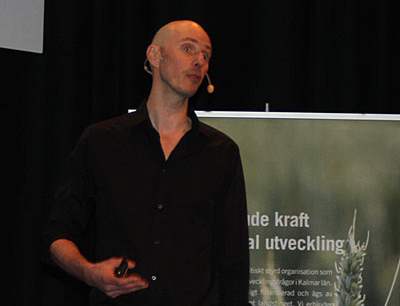Developmental Trauma
Dag Nordanger, Specialist in Child Psychology at Western Norway Violence & Trauma Resource Centre and Professor at Western Norway University.

Dag Nordanger, Specialist in Child Psychology
Dag Norlander has worked with trauma since the 1990s, and according to him, to some extent trauma psychology has limited value with respect to understanding young carers' situations and needs. In trauma psychology, the main focus traditionally lies on the injury or damage caused by negative, extreme or overwhelming events
A trauma in one's childhood often happens in a context where something else is also missing, and in reality, neglect and trauma are inseparable, claims Nordanger.
- One study shows that if a child is subjected to a particular kind of adversity or setback, such as neglect, 69 percent of the children also experience another type of adversity or setback. It is not just the adversity itself that causes harm, but also the experiences affect the development process, says Dag Nordanger.
"Window of tolerance"
The term "developmental trauma" means that children who are traumatised in their close relationships are also deprived of their fundamental developmental needs. They receive too much of what is bad and too little of what is good. A child's basic needs must be able to be regulated and adapted, and children need help to be able to regulate these. The optimal place to be is called "the window of tolerance," where children have the right level of activity and where they are also receptive to learning and can grow. If one lies above the window, one is hyperactive, and if one lies below the window, one is hypoactive, which is the opposite of hyperactive. Children who are exposed to the double burden of trauma and lack of support for regulation, like so many children and young carers, easily get caught in the zones outside the window of tolerance. In order to meet these children's basic needs, we must see their underlying patterns as based on difficulties in regulating rather than we seeing the diagnoses they fill the criteria for, states Nordanger.
- Instead of thinking about how to fix their trauma, we should rather apply ourselves to the task of how we can compensate for their losses. Even after childhood, their basic developmental needs and the power behind their developing are experiences of regulating or the support from a family member, says Dag Nordanger.
Text and photo: Fredrik Jansson
Translation: Susan Raia Canali
Senast uppdaterad 2021-12-20 av EmelieS, ansvarig utgivare EmelieS
